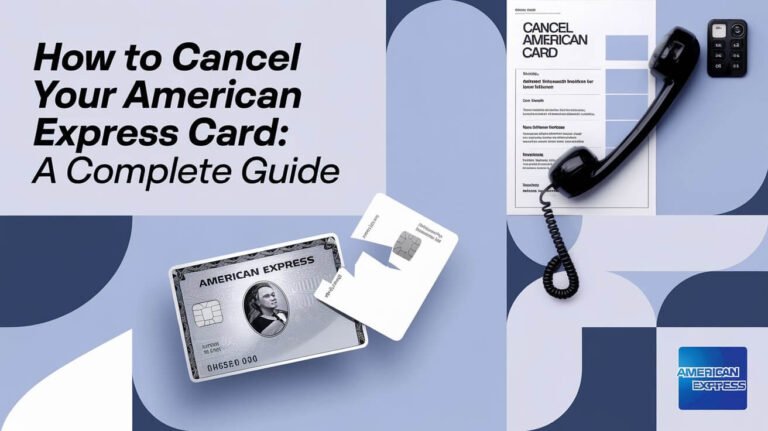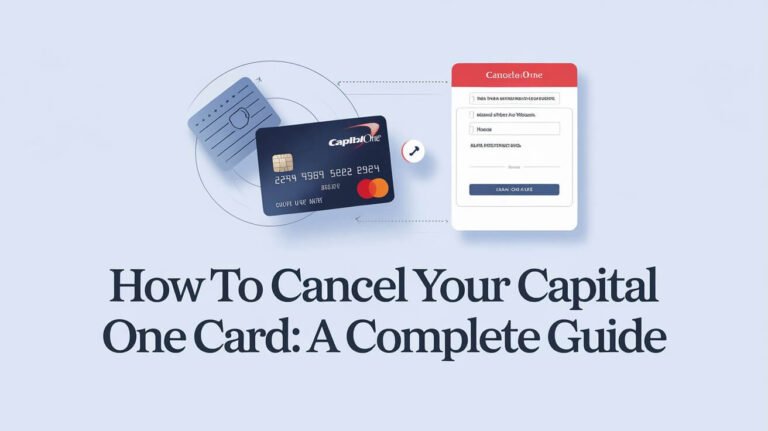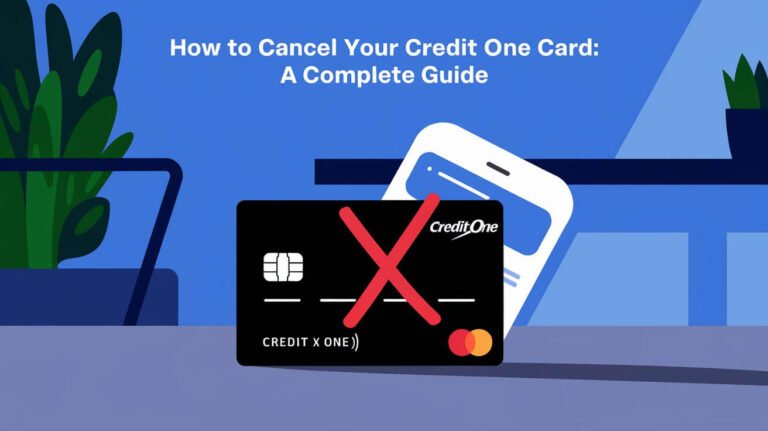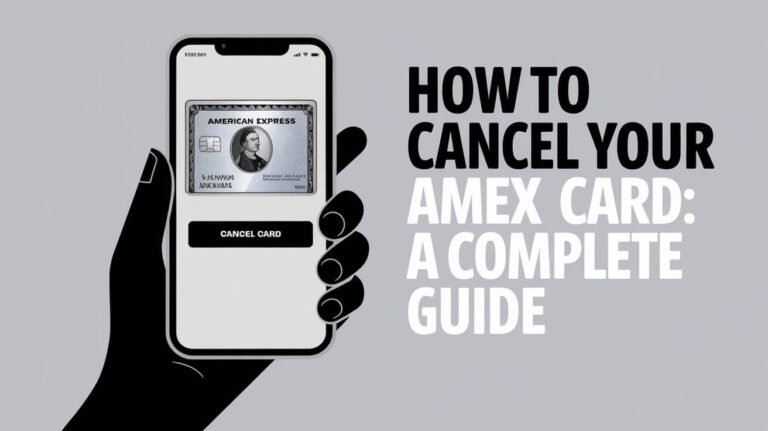How to Cancel a Credit Card?
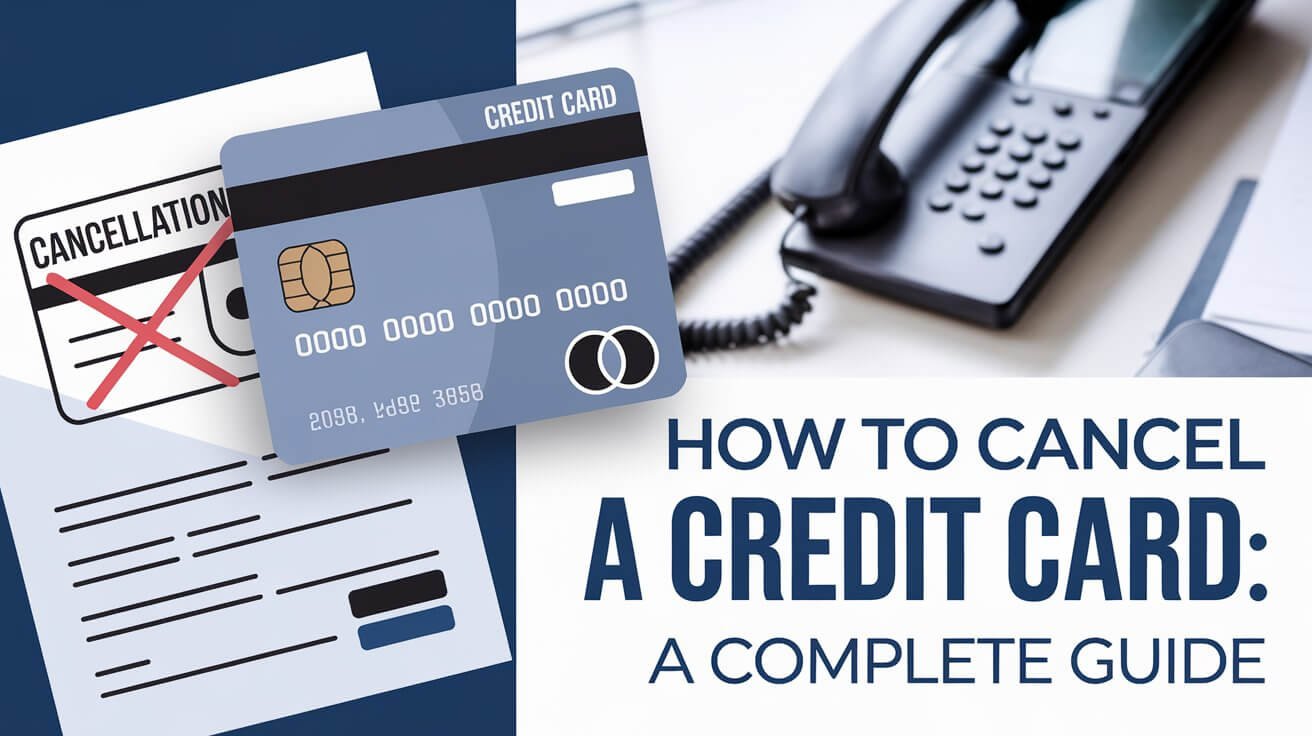
To cancel a credit card, contact your card issuer, pay off any remaining balance, redeem rewards, and request written confirmation of the account closure. This guide covers everything you need to know about canceling a credit card, from reasons to do it to potential impacts on your credit score.
Why You Might Want to Cancel a Credit Card
There are several reasons why you might consider canceling a credit card:
High Annual Fees
Some credit cards charge hefty annual fees. If you’re not getting enough value from the card’s perks to justify the cost, canceling might make sense.
Changing Financial Situation
Your financial needs can change over time. A card that once suited you might no longer fit your lifestyle or spending habits.
Unused Cards
Having too many cards can be hard to manage. If you have a card gathering dust, it might be time to let it go.
Divorce or Separation
Joint credit card accounts can be tricky during a split. Canceling shared cards can help protect your finances.
Temptation to Overspend
For some, credit cards can lead to overspending. If a card is causing financial stress, canceling it might help you regain control.
The Impact of Canceling a Credit Card
Before you rush to cancel, it’s crucial to understand how it might affect your financial health:
Effect on Your Credit Score
Canceling a credit card can impact your credit score. The extent depends on various factors, including your credit history and overall credit utilization.
Changes in Credit Utilization Ratio
Your credit utilization ratio is the amount of credit you’re using compared to your total available credit. Canceling a card reduces your available credit, potentially increasing your utilization ratio.
Length of Credit History
If you’re thinking of canceling your oldest card, think twice. The length of your credit history affects your credit score, and closing your oldest account could shorten it.
Total Available Credit
Canceling a card reduces your total available credit. This can make it harder to keep your credit utilization low, especially if you carry balances on other cards.
Alternatives to Canceling Your Credit Card
Before you decide to cancel, consider these alternatives:
Downgrading to a No-Fee Card
Many issuers let you switch to a no-annual-fee version of your card. This keeps your account open without the cost.
Requesting a Retention Offer
Card issuers often offer incentives to keep your account open. It doesn’t hurt to ask about retention offers before canceling.
Transferring the Credit Limit
Some issuers allow you to move your credit limit to another card you have with them. This preserves your total available credit.
Steps to Cancel a Credit Card
If you’ve decided canceling is the right move, follow these steps:
Review Your Rewards and Benefits
Check what rewards or benefits you might lose by canceling. Use or transfer them if possible.
Pay Off Your Balance
Ideally, pay off your balance in full before canceling. If you can’t, you’ll need to continue making payments even after closing the account.
Cancel Automatic Payments
Update any recurring payments linked to the card you’re canceling.
Redeem or Transfer Rewards Points
Don’t let your hard-earned rewards go to waste. Redeem them or see if you can transfer them to another account.
Contact Your Credit Card Issuer
Call the number on the back of your card to start the cancellation process. Be prepared for the issuer to try to convince you to keep the card.
Follow Up with a Written Request
After calling, send a written cancellation request. This provides a paper trail and helps ensure the account is closed.
Check Your Credit Report
Monitor your credit report to confirm the account shows as closed. This can take 30-45 days.
What Happens After You Cancel Your Credit Card
Canceling your card isn’t the end of the story. Here’s what to expect next:
Dealing with Residual Interest
Even after canceling, you might see a small amount of interest on your next statement. This is normal and should be paid promptly.
Handling Refunds and Credits
If you’re due any refunds or credits after canceling, the issuer will typically send you a check.
Updating Your Budget and Spending Habits
With one less card, you might need to adjust your budget and spending patterns. Plan accordingly.
Special Considerations When Canceling Specific Types of Credit Cards
Different types of credit cards may have unique considerations:
Canceling Store Credit Cards
Store cards often have high interest rates. If you’re canceling one, be sure to pay off the balance to avoid costly interest charges.
Canceling Business Credit Cards
When canceling a business card, ensure all employee cards are also canceled and collected.
Canceling Secured Credit Cards
With secured cards, you’ll need to arrange for the return of your security deposit. This usually happens after the account is fully paid off and closed.
Common Mistakes to Avoid When Canceling a Credit Card
Watch out for these pitfalls:
Closing Your Oldest Credit Card
Your oldest card contributes significantly to your credit history length. Think carefully before closing it.
Canceling Multiple Cards at Once
Closing several cards in a short period can raise red flags with credit bureaus and potentially harm your score.
Forgetting to Update Recurring Payments
Missing payments due to forgotten auto-payments on a canceled card can hurt your credit score and lead to late fees.
How to Safely Dispose of Your Canceled Credit Card
Once your card is canceled, dispose of it safely:
Cutting Up Plastic Cards
Use scissors to cut through the magnetic strip and chip. Cut the card into small pieces before discarding.
Disposing of Metal Credit Cards
Some issuers provide prepaid envelopes to return metal cards for proper disposal. If not, use tin snips to cut the card.
Protecting Your Personal Information
Shred any documents with your card number or personal information before throwing them away.

